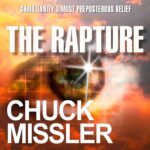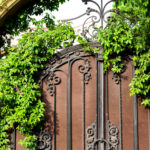-
The Rapture
Christianity’s Most Preposterous Belief
ByDr. Chuck Missler
There continue to be many questions concerning the “Rapture” of the Church and its apparent contrast with the “Second Coming” of Jesus Christ. Where does this strange view come from? Is the term “rapture” even in the Bible?
Clearly, the idea of the Rapture can be considered the most preposterous belief in Biblical Christianity. The situation regarding the doctrine of the Rapture is painfully similar to the famous quote by Dr. Richard Feynman, speaking of quantum physics:
“I think it is safe to say that no one understands quantum mechanics…in fact, it is often stated of all the theories proposed in this century, the silliest is quantum theory. Some say that the only thing that quantum theory has going for it, in fact, is that it is unquestionably correct.”
©2002, 2016 Chuck Missler (P)2016 Chuck Missler
-
Behold, I tell you a mystery; we will not all sleep, but we will all be changed, in a moment, in the twinkling of an eye, at the last trumpet; for the trumpet will sound, and the dead will be raised imperishable, and we will be changed.
– 1 Corinthians 15:51-52When Will the Last Trumpet Sound?
The Hebrew term Rosh HaShanah means “the head of the year,” and Jewish tradition teaches that God created the heavens and the earth on this day. In Judaism there are two calendars that the Jewish people recognize: the religious new year that occurs in the spring in the month of Nisan, and a civil new year that begins in the fall in the month of Tishrei. Rosh Hashanah begins the civil new year in Israel.
God instituted seven feasts for Israel in the Old Testament that have their fulfillment in Christ Jesus. These are the spring feasts:
Passover (Pesach) -God instituted the shedding of the blood of the lamb which kept the angel of death from their homes. This feast found its ultimate fulfillment in the Lamb that was slain that those who believe in Him might pass out of death into life. (Exodus 12; Leviticus 23:5; 1 Corinthians 5:7)
Unleavened Bread (Chag HaMotzi) -The feast in which the striped and pierced matzo bread was broken. This feast was fulfilled in the crucifixion of Christ for the sins of the world. (Leviticus 23:6; Isaiah 53:5; 1 Peter 2:24; Zechariah 12:10)
First Fruits (Reshit Katzir) -The presentation of the first fruits of the harvest. This feast symbolizes the resurrection of Christ, who is called the firstfruits.
Pentecost (Shavu’ot) -The commemoration of the giving of the law. On this day, the Holy Spirit came with power upon believers.

The three fall feasts are:
Trumpets (Yom Teru’ah or Rosh HaShanah) -At the Feast of Trumpets, a trumpet, or shofar, was blown to call God’s people out of the harvest fields to come worship at the Temple. This feast has a future fulfillment in the Rapture of the Church.
Atonement (Yom Kippur) -This feast follows ten days of reflection called the Days of Awe. Jewish tradition says that it will be a day when the destiny of the righteous and the wicked are written in the Book of Life and the Book of Death. For the Christian, Jesus Christ has already become the atonement for our sins, granting us eternal life. (Leviticus 23:27; Hebrews 5:6; 6:20; 9:15)
Tabernacles (Sukkot) -This feast represents God and man together again in Jerusalem.
(Leviticus 23:34; Ezekiel 37:26; Zechariah 14:16-17
Jesus literally fulfilled the spring feasts with His first coming. The fall feasts have yet to be fulfilled. The next feast is Rosh Hashanah, the Feast of Trumpets. Like all the feasts, the Feast of Trumpets is filled with parallels to prophetic events unveiled in the New Testament.
The first blast is a call to those laboring in the harvest to drop everything and return to Jerusalem. During this feast 100 trumpets are blown. These trumpet blasts are named and categorized:
Tekiah– a single blast (as at a king’s coronation)
Shevarim– a series of wail-like blasts (signifying the mourning of repentance)
Teru’ah– staccato blasts (sent as an alarm or warning to awaken the soul)
Tekiah ha’Gadol– one long blast
These first three are blown back and forth over the course of the feast until there have been 99 blasts. Then on the last day the Tekiah ha’Gadol, literally the “great tekiah,” or last blast, is sounded. The trumpeter blows the shofar once and holds it for as long as possible. The time of this last trump is never known.
Many theologians and Bible scholars believe that Christ’s appearing for His Church, called harpazo (to snatch or take to oneself) in Scripture and known as the Rapture, is the next prophetic event to occur.
Some believe that it will be fulfilled on Rosh Hashanah, as was the prophetic events linked to the spring feasts.
Whether or not the Rapture happens to coincide exactly with the Jewish feast, we have been given a prophetic itinerary of the events of the last days in God’s Word. The Feast of Trumpets is our promise that one day that final blast of the trumpet will announce Christ’s return for His Church and our resurrection to meet Him in the air.
Today we await the call. Come, Lord Jesus, come.
Jesus said,
Even so, you too, when you see these things happening, recognize that He is near, right at the door. Truly I say to you, this generation will not pass away until all these things take place. Heaven and earth will pass away, but My words will not pass away. But of that day or hour no one knows, not even the angels in heaven, nor the Son, but the Father alone. Take heed, keep on the alert; for you do not know when the appointed time will come.
– Mark 13:29-33
-
The Philistine also said to David, ‘Come to me, and I will give your flesh to the birds of the sky and the beasts of the field.’ Then David said to the Philistine, ‘You come to me with a sword, a spear, and a javelin, but I come to you in the name of the Lord of hosts, the God of the armies of Israel, whom you have taunted.’
– 1 Samuel 17:44-45
There’s a reason for the daily battles.
They come in waves, day after day, night after night: constant attacks on our jobs, relationships, finances, health, and souls. The battles against the people of God are constant, wearying, discouraging. Behind each one a mocking voice assails us, declaring our certain destruction. This year has been a hard one for many of us, and it’s easy to be discouraged right now. But the trials that threaten to be take us down can teach us vital lessons in spiritual warfare. The constant smaller battles are the training for the larger one, the fight for our people and our faith.
A shepherd in Israel once learned war by caring for sheep. The lessons he learned in the lesser daily struggles taught him how to fight to win the important battles and what weapons were effective against those who prey on the innocent.
David was a young Israeli man who watched over his father’s flocks. Goliath was a Philistine giant who hated Israel. The first book of Samuel relates the account of the aggression of the Philistines who came up against Israel. The Israeli army assembled to resist them, but their fear kept them from engaging their enemy. They stayed encamped day by day between their enemies and their families but could neither advance nor retreat, existing instead in the no-man’s land between victory and defeat.
Every day, the Philistines sent out their champion Goliath, who taunted the army of Israel with his threats as they cowered in their tents. One day David took provisions to his brothers in the camp and was astounded by their inaction. Battle-hardened by his years of single-handedly fighting off the vicious predators of his father’s sheep, David was irked by Goliath’s insults against God. He accepted Goliath’s challenge to fight him.
David rejected any weapons except the one that was battle-tested: his slingshot. From the river he chose five smooth stones. They needed to be smooth to cut down on friction, thereby sailing faster through the air when released from the slingshot.
Much has been written about the number of stones David chose from the river. Some tie it to grace, since the number five represents grace in the Bible. But David did not give grace to the giant. He killed him. Others say the number five represents the five-fold ministry given to the saints. But David only used one stone. Since it appears that Goliath had four brothers, a more reasonable explanation might be that he armed himself with a stone for each of them, in case he wound up facing all five of them.
Although other applications and symbolism may be attached to the account, the most likely reason David chose five stones was that he was an experienced shepherd.
He knew that when he faced an enemy of any sort, whether it was a lion, bear, or giant, he needed to be well-prepared. David ensured that he had enough ammunition to finish the job of dispatching the enemy of his people.
But David only needed one good shot, and he took it.
The Hebrew word for “stone” is אבן, transliterated into the English word Eben. The Hebrew word is a contraction of two words, “Father” and “Son.” All David needed was to exercise the authority of the Father and the Son in the power of the Holy Spirit to gain victory over his enemy.
If you awaken each day to a Goliath that stalks your valley to torment and threaten you, take charge. You may or may not be able to change the situation, but you can silence the voice of intimidation and fear, live in peace, and see deliverance. God rescues His people.
The Lord does not deliver by sword or by spear; for the battle is the Lord’s….
-1 Samuel 17:47
-
Oh that my head were waters
And my eyes a fountain of tears,
That I might weep day and night
For the slain of the daughter of my people!– Jeremiah 9:1It’s Okay to Cry
He is known as the weeping prophet. Born in Anathoth, the son of a Hebrew priest, Jeremiah lived approximately 650 to 570 B.C. His ministry spanned the reigns of five kings of Judah: Josiah, Jehoahaz, Jehoiakim, Jehoiachin, and Zedekiah.
God called him from his youth to warn Israel of His anger at their idolatry and the impending judgment upon them if they didn’t repent. He suffered much for his obedience to God’s Word, persecuted by his own people. For decades his preaching fell on deaf ears.
Then, as Jeremiah had prophesied, Jerusalem fell captive to a foreign king.
Some are born to see and understand things beyond the natural realm of humanity’s senses.
They feel pain deeper, sorrow harder over injustice, and hear the groaning of creation in a way most don’t.
Those who don’t know what to do with the pain live in depression. Those who understand the source, hear the Word of God, and receive the work of the Comforter live in great power.
These are the intercessors, the advocates, the men and women who follow after the heart of God.
They see His tears. They hear His grief over a dying world. They weep with Him. They have the courage to see what the Father sees, to feel what He feels, to be His hands and feet and voice to a world spinning out of control. When others run from danger, they run toward it to warn and rescue the perishing.
Their pain inspires them to positive action. Their suffering inspires them to love deeper, to speak the truth in gentleness.
If you look out over your world today and feel like crying, it’s okay. In fact, it’s good. Some people, like Jeremiah, were born to weep. Let your tears wash away the self-centeredness that is common to us all and inspire you to prayer more, love deeper, and speak the Word in truth.
Our planet is dying. Billions of people will die with it without ever knowing the Savior.
It’s good to grieve.
Because in much wisdom there is much grief, and increasing knowledge results in increasing pain.
– Ecclesiastes 1:18
-
-
Download Link Below:
(Right-Click link above and click “Save Link As” to download)
100% Legal. 100% Free.
All free downloads offered with permission from the artist, content creator, and/or label.
We HAVE MORE FREE MUSIC!
100% Legal. 100% Free.

-
100% Legal. 100% Free.
All free downloads offered with permission from the artist, content creator, and/or label.
-
100% Legal. 100% Free.
All free downloads offered with permission from the artist, content creator, and/or label.
Free Christian Music



100% Free. 100% Legal
All downloads are offered with permission from the artists and/or labels.
-
-
-
-
Oh, say, does that star-spangled banner yet wave o’er the land of the free and the home of the brave?
-Francis Scott Key
All these died in faith, without receiving the promises, but having seen them and having welcomed them from a distance, and having confessed that they were strangers and exiles on the earth.-Hebrews 11:13
One day recently, I awakened to discover my father’s America had died.
Thankfully, he had already left this earth behind and was not here to mourn her passing. He left when she was alive, if not well. He would never know the color of his skin marked him as inherently evil and a man of privilege in a brave new world creating reality out of perception. In his America, it was possible for a man to overcome the circumstances of his birth.
My dad grew up in poverty in the 1930’s repeatedly and systematically abused by a sadistic father. Instead of using the violence perpetrated against him as an excuse to victimize others, Dad understood the injustice of hurting the innocent because he had suffered. He knew that no matter how he had been treated, it was never right to be cruel to others. His own father’s failures challenged him to grow up to be a better man, a kinder human being, the antithesis of his dad. He taught us to treat all men as we would want to be treated.
Dad came to manhood in the shadow of a name smothered in the shame of his father. He always believed his sweet mother, hard work, and the grace of God delivered him from a childhood of poverty and abuse. He worked hard to give us a name we would be proud to wear.
In my father’s America, hard work and the grace of God were honored concepts, and it was integrity that made a nation great.
In his America, it was possible to transcend injustice. Reaching heavenward was encouraged, and godly values were treasured. Age and experience were respected, and the flag was never allowed to touch the ground.
My father proudly served in the United States Navy. When he married and had a family, he worked hard to give us the life he never had. He loved this country and all it stood for. If he were here today to witness the burning of our history, our culture, and our future as a nation, he would weep.
Then he would remind me that this place is not our home, that we are just passing through to a greater land. He would tell me this life is the preparation for the one to come. He would assure me that this, too, shall pass.
Whether or not America survives her current challenges is anyone’s guess. I am grateful to have lived in such a wonderful country.
But today I grieve for this nation, and I am glad that I am just passing through.
But as it is, they desire a better country, that is, a heavenly one. Therefore God is not ashamed to be called their God; for He has prepared a city for them.”
– Hebrews 11:16
-
Nashville, Tenn. (June 26, 2020) —- The talented and well-respected songwriter, Rachael Nemiroff, is also known for her talent as a pop singer, which will be on display Friday with the release her new single, “Home,” on June 26. The song is the title track for Nemiroff’s upcoming EP that releases in November. The song was co-written by Nemiroff, Benji Cowart, and Tommy Iceland, who also served as producer of the record. “Home” will be available at all digital music outlets upon release, along with the music video for the single. The concept for the song came from a situation that Nemiroff experienced with a friend. This person had been really involved with their faith and the church, until there was an incident that caused a lot of pain. This led to her friend stepping away from their faith, but at the same time they wanted to pray for Nemiroff. The first two lines in “Home” are inspired from the first couple of words of this prayer. We don’t talk much anymore/I know it’s been a while/I wasn’t sure I knew who I could turn to/ I’ve been done wrong by the ones who know the truth/I guess not everyone who claims your name is like you.
“I hope this song can be an encouragement to anyone who may have had a similar experience as my friend,” said Nemiroff. “I hope it can remind them they are seen and loved by a heavenly father.”Nemiroff is from Pittsburgh, Pa., where her music influences growing up were Norah Jones, Britt Nicole and for King & Country. She moved to Nashville in 2011, where she graduated from Trevecca University after studying songwriting and voice. Nemiroff started playing local, national and international venues, while at the same time she started writing sessions with some of the best in the Christian music industry. This includes Tony Wood, Michael Farren, Tedd T., among many others. Nemiroff has also opened for such artists as Jonny Diaz, Sarah Reeves, and shared the stage with Hannah Kerr and Leanna Crawford.
At the same time, Nemiroff has had strong success with Spotify, with her last single, “Temporary,” being featured on Spotify’s New Music Christian Friday Editorial Playlist for four weeks in a row, along with features on Spotify’s Curated Playlists called Sing A New Song, Hits up, and Christian Dance Party. She has garnered over 50,000 Spotify monthly listeners as of June 2020, and over 10,000 with her Instagram account.For continued updates about Rachael Nemiroff please visit her website, and social media accounts at Facebook, Twitter and Instagram.
-
-
And Jesus said, “A man had two sons.The younger of them said to his father, ‘Father, give me the share of the estate that falls to me.’ So he divided his wealth between them.And not many days later, the younger son gathered everything together and went on a journey into a distant country, and there he squandered his estate with loose living.”
– Luke 15:11-13
A Father’s Grief
Father’s Day is set aside each year to celebrate the dads in our lives. But for many, this is a hard day. Some men are not able to have children. For others, this is the day they grieve the loss of a child. And for many, this day will pass with the knowledge that they will not hear from their son. In this context, the Biblical story of the prodigal son is an ancient one that still pulls on the souls of fathers everywhere.
The prodigal was a young man who became restless and decided to leave home for the big city. He took his inheritance, spent it all on loose living, and was reduced to feeding pigs in order to survive. As he starved in the pig pen, he came to his senses and realized that his father’s servants ate better than he did. He swallowed his pride and returned home.
In the Bible account, the first thing the prodigal son saw when he arrived home in humiliation was the sight of his father running down the road to meet him with joy. There they embraced, both the fears of the son and the heartache of the father dispelled in a moment of sweet reconciliation.
The son suffered much for his choice to walk away and squander his inheritance, and it was his desperation that drove him home. It must have been a long walk home that day.
But the things that he never saw would have helped him to understand what it meant to be loved without condition.
Had he known, he would have run all the way home.
He never saw the agony of an old man broken. He never saw the lines in his father’s face from the many nights without sleep. He never saw how his father struggled to hold on to his integrity when the questions drowned him in the night.
He never saw the tears or the drooped shoulders from carrying a sorrow too great. He never saw the way his father fought to hold up his head around others, as if to dare the shame to approach him.
If he could have seen his father’s heart, he would have known how many times he was remembered, prayed over, grieved, forgiven, remembered, prayed over, and grieved again. If he could have only seen the pain he inflicted by disrespecting and discarding his family’s love so easily, he would have never left.
If only he could have seen how much precious time he had lost, how much happiness he had squandered on sin.
A godly father’s heart is larger than our failures.
If we realized how much the story of the prodigal reveals of our Father in heaven, who grieves silently and intensely, how much more we would understand God. It is this Father who weeps for us, who watches the road for our return, and who runs to meet us with great joy when we make that long walk home.
This son of mine was dead and has come to life again;
he was lost and has been found.
– Luke 15:24
-
-
-
This I recall to my mind,
Therefore I have hope.
The LORD’S lovingkindnesses indeed never cease,
For His compassions never fail.
They are new every morning;
Great is Your faithfulness.
‘The LORD is my portion,’ says my soul, ‘Therefore I have hope in Him.’
– Lamentations 3:21-24
When the World Seems out of Control
The year of 2020 is only half over, and it’s already been one for the books. Nationally, internationally, and personally, it’s been a year of unprecedented challenges.
I broke my back just three days after the new year dawned, the same month news stories revealed a virulent new coronavirus in China. Soon, that news became more real as a pandemic rapidly swept across the nations. For our household, COVID-19 meant drastic measures to protect our high-risk family members and a constant search for the necessary medical supplies.
Since May, protests, riots, and looting have shaken the core of our country. Our daughter and her family faced the threat of imminent danger and saw devastating property damage in their neighborhood in Minneapolis. They had to evacuate during the worst of it and returned to the sobering sight of a burned-out city. For them, this was more than a national debate. This is their home and their friends. The emotional toil has been enormous.
No one knows what the rest of the year will bring. But one thing is certain: God is in control.
He is bringing together the harvest of the ages, both the good and the evil. In the furnace of trial, many people have experienced spiritual regeneration and renewal. Many have reconsidered their priorities and made important changes in their lives. Both bad and good fruit of many hearts have been revealed. And some beautiful stories of compassion and faith have emerged from the ashes of the last months.
When we lift our eyes above the storms buffeting us, we see the One who conquers the waves.
It is when we fix our eyes on Him and Him alone that we walk upon the waters. And when we sink, it is He who will reach down every time and lift us up to safety.
God is working out a plan for this earth that He formed before its very creation. We must only endure and trust in His power to bring that plan to fruition. Jesus gave us two great commandments:
Love our God with everything in us; love our neighbors as much as we love ourselves. God has everything else. We can arise each day in hope.
I would have despaired unless I had believed that I would see the goodness of the Lord
In the land of the living.
Wait for the Lord;
Be strong and let your heart take courage;
Yes, wait for the Lord.
– Psalm 27:13-14
-
Test yourselves to see if you are in the faith; examine yourselves! Or do you not recognize this about yourselves, that Jesus Christ is in you—unless indeed you fail the test?
-2 Corinthians 13:5Recently the front man for a well-known Christian band confessed publicly that he doesn’t believe in God anymore.
By his own admission, he was raised in a Christian home and did all the things that would be attached to following Jesus. But now he’s announced to the world that he’s not a believer.
His declaration follows a string of such renunciations to hit the news. Among the questions we ask ourselves in the wake are these: Did he lose his salvation? Was he ever saved? Or is he simply going through a time of questioning?
Clearly, only God knows the answer to that.
It does highlight an urgent clarion call to everyone who claims to be a Christian:
Be sure you know what you believe.
In the Gospels of the New Testament, the Lord Jesus described the types of people upon whom the seed of the Good News would fall. One was the person upon whose heart the seed fell as upon a roadside. This heart was hard and beaten down, and the seed could not take root. The second person was the one who had little depth of soil, and the plant sprung up but couldn’t take root. The third was the person whose life was so full of the weeds of sin and worry that the seed was choked out and died. One person, however, had the depth and receptive heart in which the seed of life could take hold and flourish.
The one on whom seed was sown on the rocky places, this is the man who hears the word and immediately receives it with joy; yet he has no firm root in himself, but is only temporary, and when affliction or persecution arises because of the word, immediately he falls away.
– Matthew 13:20-21A couple of months ago, I read about how to grow new celery from the base of an old bunch. I followed the directions, placing the stump in a shallow dish of water. Sure enough, I soon saw a new bunch of tender green growth. I planted the base in soil and watched with satisfaction as the new growth continued. I couldn’t wait for the harvest.
Then one day, the new growth began to wilt. I checked the soil, and it wasn’t dry. It continued to wilt until it completely died. I pulled it up out of the soil and discovered that it had no roots. It had only lived as long as the original stump was there. But as the stump died, the new plant had no way to survive.
A plant with no roots looks just like a rooted plant for a while. It takes the elements of time and testing to reveal whether it will wither or grow to produce fruit. The Lord uses these elements to test and reveal the validity of our beliefs.
As we negotiate a strange and uncertain world, it is crucial that we make sure the confession of our faith.
We are gifted with this day, and this day only, to make things right with God. Tomorrow we may be victims of a pandemic or other earth-shaking event. Tomorrow, any of us could be standing before God.
Today is the day to check out your root system. Do you know what you believe? Is your faith one that is rooted in Jesus Christ, or have you been living on the faith of others? If the world should fall, will you stand?
For this reason I bow my knees to the Father of our Lord Jesus Christ, from whom the whole family in heaven and earth is named, that He would grant you, according to the riches of His glory, to be strengthened with might through His Spirit in the inner man, that Christ may dwell in your hearts through faith; that you, being rooted and grounded in love, may be able to comprehend with all the saints what is the width and length and depth and height— to know the love of Christ which passes knowledge; that you may be filled with all the fullness of God.”
– Ephesians 3:14-19 (NKJV)
-
Where can I go from Your Spirit?
Or where can I flee from Your presence? If I ascend to heaven, You are there;
If I make my bed in Sheol, behold, You are there.If I take the wings of the dawn,If I dwell in the remotest part of the sea, Even there Your hand will lead me,
And Your right hand will lay hold of me.-Psalm 139:7-10We often think of God as living in heaven, and rightfully so.
Psalm 11:4 declares that the Lord is in His holy temple in heaven; Revelation 4 even describes the Throne Room of God there. And yet, the Bible also tells us that He is omnipresent, or present in every place at the same time. Acts 7:49 asserts that heaven is God’s throne and the earth is His footstool. In addition, we are told in the New Testament that God lives inside each believer through the Holy Spirit.
Clearly, God is everywhere. So why does He single out the praises of God’s people as a place He inhabits? Isn’t that redundant?
“But you are holy, you who inhabit the praises of Israel.”
-Psalm 22:3 (WEB)The Hebrew word יָשַׁב yâshab is commonly translated as “to inhabit” or “enthroned.” It means to sit, to dwell, or to live.
The word is used throughout the Old Testament when the Scriptures speak of people dwelling, or settling in a place. The word also has the connotation of sitting as a judge.
From His place in heaven, God seems remote, disconnected from our world. It’s easy to blame Him for our problems, to see Him as uncaring and unloving. At times, He may feel to us like the cold authoritarian.
Nothing could be further from the truth. God dwells in heaven, but He wants to be enthroned in our hearts.
He yearns for us to trust His plan for our lives; to understand and appreciate Him for who He is, even when we don’t comprehend what He is doing. For us, the temptation is great to see God mostly as a provider of good stuff. When He doesn’t appear to be measuring up to our expectations, we complain. But like any loving father, God wants more than just to be the person with the open wallet. God wants relationship. He wants to share the riches of fellowship with us. He wants to hear from us and to talk with us.
When we set down our list of wants and consider all that our Lord is and has done for us, we can’t help but praise Him. From that wellspring of gratitude and revelation erupts a fountain of joy.
Ours, and His.
God abides in our worship. He is near to a grateful, though broken heart. His authority and royal nature are displayed in all their beauty when we yield sovereignty of our lives to Him. God inhabits, fills, abides, rejoices, and lives in our praise; not because He needs the validation, but because we need the reminder. Praise destroys the lies of the enemy and exalts the King.
The Lord your God is in your midst,
A victorious warrior.
He will exult over you with joy,
He will be quiet in His love,
He will rejoice over you with shouts of joy.
– Zephaniah 3:17
Click Next Page to load more




























